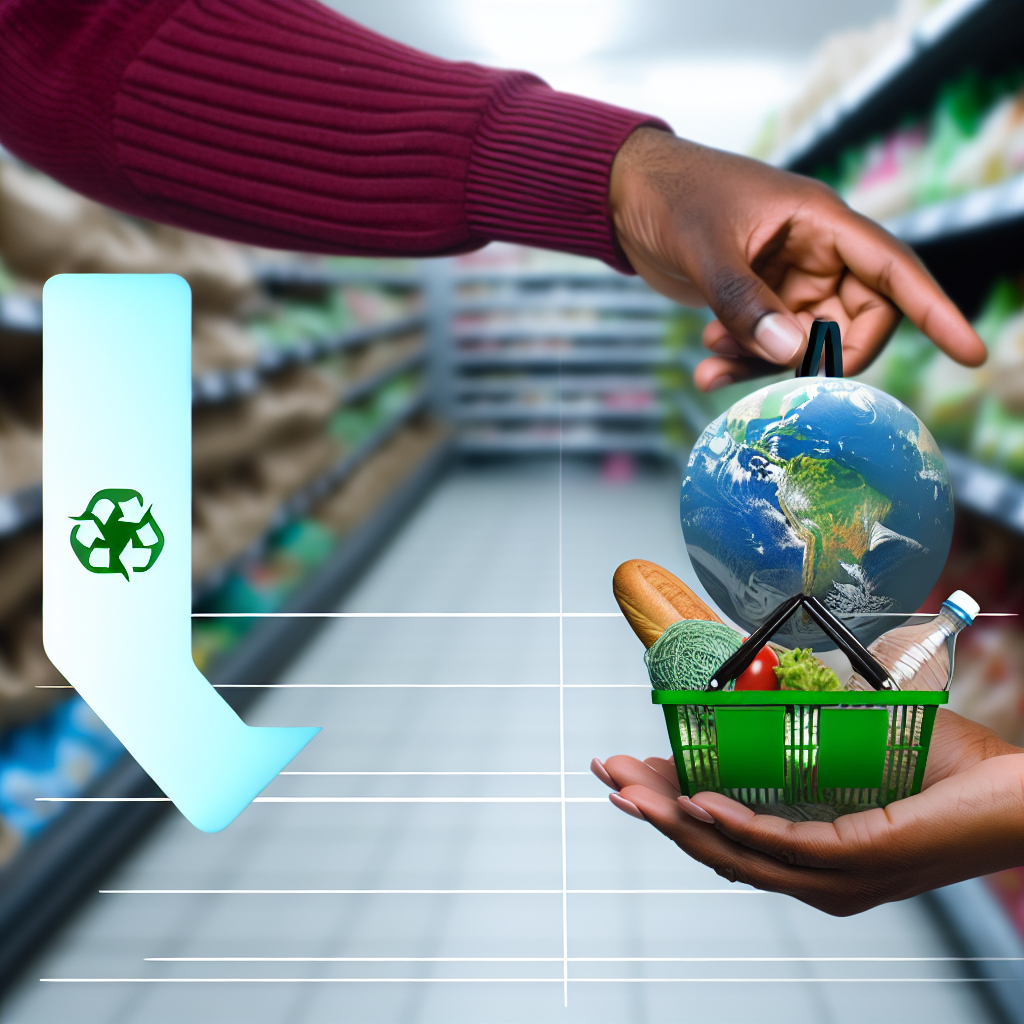10 Easy Ways to Save Money on Groceries and Help the Planet
Introduction
Hey there, friends who love saving money and helping the Earth! This is another great edition of the Frugal Zeitgeist, where we show you how to do both. Today, we’re going to talk about ten easy changes you can make when you shop for groceries. These changes will not only make your wallet happy, but they’ll also make you a hero for the environment. You’ll see that you can save money and take care of our planet at the same time. So grab your reusable shopping bags, and let’s make saving fun!
Section 1: Why It Matters
How Grocery Shopping Affects the Environment
Grocery shopping isn’t just about choosing between paper or plastic bags. Our shopping habits can really hurt the Earth. Did you know that a lot of food goes to waste every year? According to the United Nations, about one-third of all food is never eaten, and this waste is responsible for a big chunk of harmful greenhouse gases. Plus, there’s all that packaging waste from things like plastic-wrapped veggies and individually wrapped snacks. Our groceries leave a giant carbon footprint!
How Making Better Choices Can Save Money
But don’t worry, my money-saving pals! Making small changes can save you a lot of money. By making smart and eco-friendly choices, you can really cut down your grocery bill. Plus, learning to shop wisely now means you’ll be better off financially later. Who doesn’t love saving money while saving the planet?
Section 2: Simple Food Swaps
Swap 1: Eat More Plant-Based Proteins
Time to enjoy more plants! Cutting back on meat not only saves you money (meat can be the priciest item on your list), but it also helps the planet. Stock up on affordable plant proteins like lentils, beans, and tofu. Both your taste buds and your budget will thank you!
Swap 2: Make Your Snacks
Instead of buying expensive, packaged snacks, try making your own. You can easily make yummy homemade granola bars, roasted chickpeas, or trail mixes. You’ll save money and avoid those unhealthy preservatives—it’s a win-win!
Swap 3: Make Your Drinks
Buying cute little bottled drinks can cost a lot and leaves behind a trail of plastic waste. Make it a fun family activity to brew homemade iced tea, lemonade, or fruit-infused water. Quench your thirst and help the Earth by skipping the bottles!
Section 3: Smart Shopping
Swap 4: Buy in Bulk
Buying in bulk is great for saving money and reducing waste. You’ll find long-term savings this way. Items like rice, nuts, and spices are great to buy in bulk. Your pantry and savings will be happy with these smart choices.
Swap 5: Choose Seasonal and Local Produce
Forget about avocados in December—choose seasonal and local produce. They’re cheaper and much better for the environment. Check out your local farmers’ markets for deals and maybe make some new friends too!
Swap 6: Pick Generic Brands
Why pay more for brand names when you can get the same quality for less? Generic brands help you save a lot. Try them out, and you might find a new favorite. Just be sure to read the labels!
Section 4: Reducing Waste
Swap 7: Use Reusable Bags
Say goodbye to plastic bags! Get sturdy, reusable bags. They last longer and help reduce waste. Plus, they often come in fun designs.
Swap 8: Compost Your Waste
Turn your trash into treasure by starting a compost pile at home. It will help your garden grow with rich soil, and you’ll waste less. It’s almost like magic—turning scraps into garden goodness!
Swap 9: Use Vinegar for Cleaning
Skip expensive, chemical cleaners. White vinegar works wonders for cleaning! It’s cheap, effective, and good for the environment—your home’s new best friend.
Section 5: Smart Kitchen Habits
Swap 10: Better Food Storage
Forget cling wrap and plastic baggies. Use reusable storage containers, beeswax wraps, or mason jars. They keep your food fresh and cut down on waste. These are a smart frugal person’s best friends!
Conclusion
And there you have it—ten easy swaps that help lower your grocery bill and save our planet. Every little bit helps. Start small and keep building on these good habits. Your wallet, health, and our Earth will be thankful. Now go, frugal heroes, and share your tips for sustainable shopping in the comments. Let’s keep the Earth and this conversation lively!
Additional Resources
- Learn more about shopping sustainably: Brightly Eco’s Sustainable Guide
- For more reading, check out Zero Waste Home by Bea Johnson
- Watch documentaries like The True Cost (available on different platforms)
Happy saving and planet-loving!
